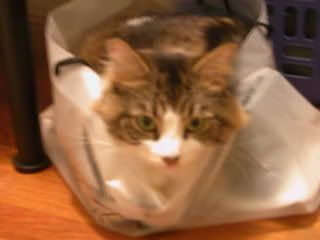Tonight begins Rosh Hashanah, the first holiday of the Jewish High Holidays. Tonight I will have a quick and traditional meal with my family and then walk part of the way to temple (we also drive part of the way) and sit through services. I always enjoy walking back to the car after services when the stars are all out and seeing the community around me and knowing that around the world, people are walking to temple and prepping for the New Year. When I use to teach the children's services during the day on Rosh Hashanah we would read this book about the birthday of the world, and play an alarm clock to talk about how Rosh Hashanah is about getting your ready for Yom Kippur (The alarm clock is a little like the shofar calling us to worship).
The ten days between those holidays are a time to think about the new year and reflect on the old. The tradition is to cast bread onto a flowing body of water and imagine your sins from the past year is also cast away. This is the time of year to ask for forgiveness and the tradition says that if you ask a person for forgiveness three times from the bottom of your heart and they still can't forgive you, then G-d will forgive you. In the children's service we talk a lot about missing the mark, like if you were shooting at a target with arrows. However, the Talmud states that "Rosh ha-Shanah is the most important judgment-day, on which all the inhabitants of the world pass for judgment before the Creator, as sheep pass for examination before the shepherd."
In this idea of judgment, there is this long poem that is recited on Yom Kippur that is stuck in my head today. I have never particularly enjoyed it, since I personally don't like the idea of G-d deciding on one day who will live and who will die for the whole year. We only read a piece of it in our traditional Reform service (there are other styles of services offered both at my temple and at other temples) and I have included it below (in English):
On Rosh Hashanah it is inscribed,
And on Yom Kippur it is sealed.
How many shall pass away and how many shall be born,
Who shall live and who shall die,
Who shall reach the end of his days and who shall not,
Who shall perish by water and who by fire,
Who by sword and who by wild beast,
Who by famine and who by thirst,
Who by earthquake and who by plague,
Who by strangulation and who by stoning,
Who shall have rest and who shall wander,
Who shall be at peace and who shall be pursued,
Who shall be at rest and who shall be tormented,
Who shall be exalted and who shall be brought low,
Who shall become rich and who shall be impoverished.
But repentance, prayer and righteousness avert the severe decree.
However I was surprised to see that there is a next line that is not included in our service "For Your praise is in accordance with Your name. You are difficult to anger and easy to appease. For You do not desire the death of the condemned, but that he turn from his path and live. Until the day of his death You wait for him. Should he turn, You will receive him at once. In truth You are their Creator and You understand their inclination, for they are but flesh and blood. The origin of man is dust, his end is dust." In some way that new piece adds some comfort to me, more along the lines of G-d being a friend and companion who waits for you to find your own way.
Sorry for all the religious talk for those who are here to read about knitting, I just have been pondering that song today. There has been knitting and hopefully tomorrow I will have a nice picture to show you. Until then, eat some apples and honey for a Shana Tova or a sweet year.
Wednesday, September 12, 2007
L'Shana Tovah Tikatavu or "May only good things be written for you this year"
Subscribe to:
Comment Feed (RSS)





|